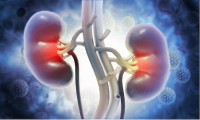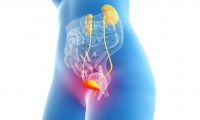-
Simple Measurement Predicts Risk of Rapid Progression of Chronic Kidney Disease
- Source: drugdu
- 293
- February 29, 2024
-
FDA Approves Imbruvica Label Expansion to Include Oral Suspension Formulation
- Source: drugdu
- 284
- February 29, 2024
-
Allecra Therapeutics’ Exblifep Approved by FDA for Complicated Urinary Tract Infections
- Source: drugdu
- 481
- February 29, 2024
-
China’s marketed drug patent information registration platform has a new “legal document submission module”
- Source: drugdu
- 301
- February 29, 2024
-
Inclusion of noncommunicable disease care in response to humanitarian emergencies will help save more lives
- Source: drugdu
- 378
- February 29, 2024
-
China Pharma Holdings Inc. Announces 1-for-5 Reverse Stock Split
- Source: drugdu
- 254
- February 29, 2024
-
Hengrui Pharmaceuticals’ PD-L1 Inhibitor Adebelizumab Combined with HER2 ADC SHR-A1811 Approved for Breast Cancer Clinical Treatment
- Source: drugdu
- 659
- February 29, 2024
-
Sponge-on-a-string test to benefit NHS patients with oesophageal cancer
- Source: drugdu
- 516
- February 29, 2024
-
UK and Netherlands researchers call for funding to investigate cancer treatments
- Source: drugdu
- 372
- February 29, 2024
-
New Blood Testing Method Detects Potent Opioids in Under Three Minutes
- Source: drugdu
- 505
- February 28, 2024
your submission has already been received.
OK
Subscribe
Please enter a valid Email address!
Submit
The most relevant industry news & insight will be sent to you every two weeks.













